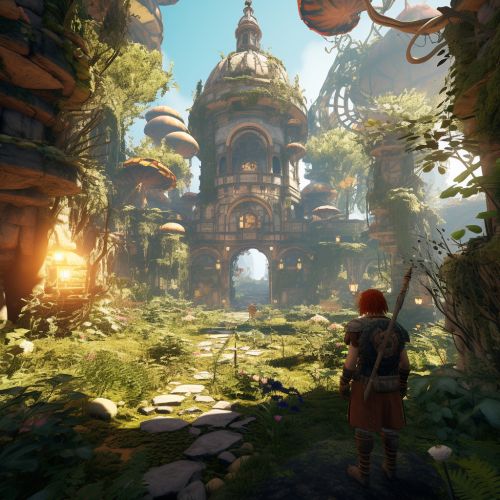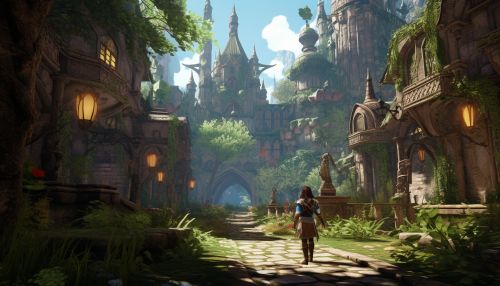Role-playing video game
Overview
Role-playing video games (RPGs) are a genre of video games where the player controls the actions of a character (or several party members) immersed in a well-defined world. Many RPGs allow players to assume the role of an imaginary character, often in a fantastical setting, and make decisions that affect the game's narrative direction and outcome. The genre's origins can be traced back to tabletop role-playing games, particularly D&D, which had a profound influence on the development of RPG video games.


History
The history of role-playing video games begins with the advent of computer and console gaming, influenced heavily by traditional tabletop RPGs. The first RPG video game, titled Dungeon, was created in 1975 on the PLATO system, a pre-internet online platform for education. The game was a simple text-based adventure, but it laid the groundwork for the RPG genre.
Gameplay Mechanics
RPGs are known for their complex and layered gameplay mechanics. These often include character customization, skill trees, combat systems, quest lines, and interactive environments. The player's ability to influence the game world and its story is a defining feature of the genre.
Character Customization
Most RPGs offer extensive character customization options. Players can often choose their character's gender, race, class, and physical attributes. This customization extends to the character's abilities and skills, which players can typically upgrade or modify as they progress through the game.
Skill Trees
A common feature in RPGs is the use of skill trees, which allow players to specialize their characters in specific areas. As characters gain experience, they earn points that can be allocated to different skills in the tree, enhancing their abilities in those areas.
Combat Systems
Combat in RPGs can take many forms, from turn-based strategy to real-time action. Some games feature a combination of these styles. The combat system often involves the use of character abilities, tactical positioning, and strategic decision-making.
Quest Lines
Quests are a fundamental element of RPGs. They provide the narrative framework that drives the game's story, while also offering players objectives to complete. Quests can range from main story missions to side quests, which offer additional content and rewards.
Interactive Environments
Many RPGs feature richly detailed, interactive environments. Players can explore these worlds, interact with non-player characters (NPCs), and discover hidden items and locations. The level of interactivity can greatly affect the player's immersion in the game world.
Sub-genres
There are several sub-genres within the RPG genre, each with its own unique characteristics. These include action RPGs, tactical RPGs, massively multiplayer online RPGs (MMORPGs), and roguelikes.
Action RPGs
Action RPGs combine the character development and narrative depth of traditional RPGs with action-oriented combat. These games often feature real-time combat, requiring players to directly control their character's actions in battle.
Tactical RPGs
Tactical RPGs emphasize strategy and tactical decision-making. They often feature grid-based combat, where players must strategically position their characters and plan their actions to gain an advantage.
MMORPGs
MMORPGs are RPGs that are played online with a large number of players. These games feature persistent worlds that continue to exist and evolve even when the player is not online.
Roguelikes
Roguelikes are a sub-genre of RPGs characterized by procedural generation and permadeath. These games feature randomly generated levels and permanent character death, meaning that once a character dies, the player must start a new game.
Impact and Influence
RPGs have had a significant impact on the video game industry and have influenced many other genres. The character progression systems and narrative structures found in RPGs have been adopted by many other game types, and the genre's emphasis on player choice and agency has had a profound effect on the way video games are designed and played.
